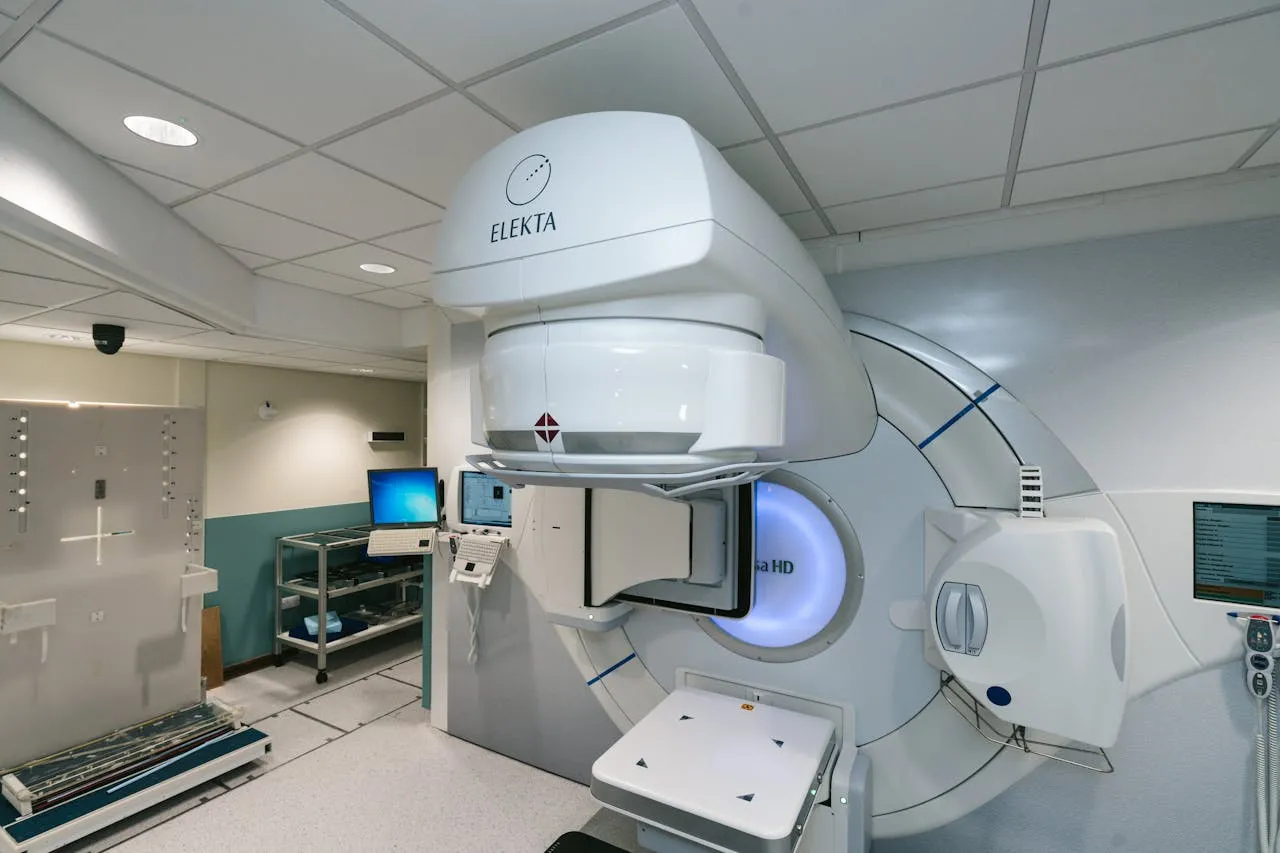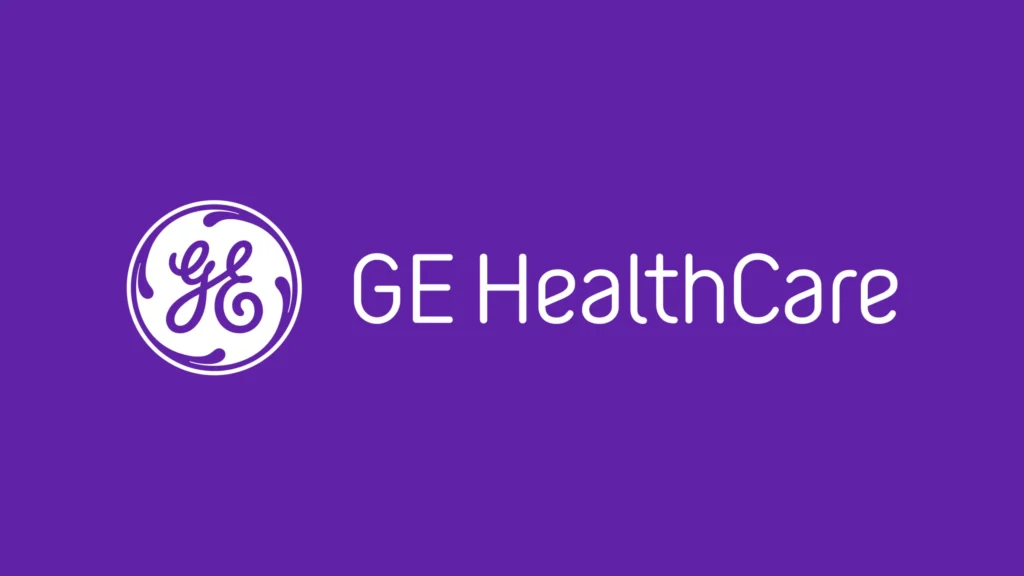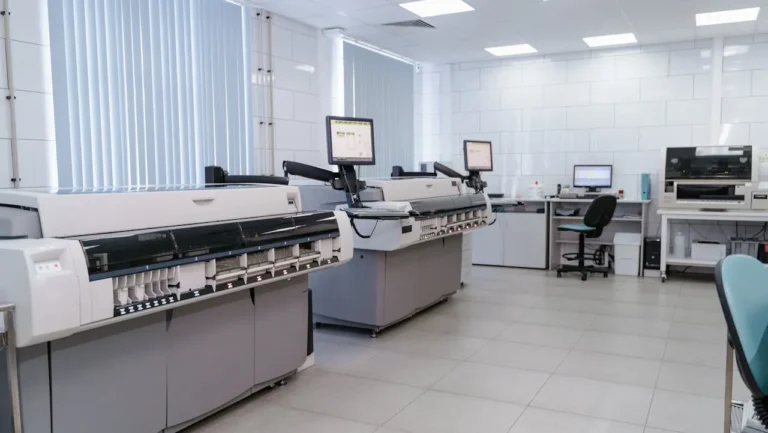
GE HealthCare Expands AI and MR Capabilities in Radiation Oncology with New Solutions Debuting at ESTRO 2025
At the upcoming ESTRO 2025 Congress in Vienna, Austria, GE HealthCare (Nasdaq: GEHC) is set to showcase a powerful expansion of its radiation oncology portfolio—underscoring its commitment to advancing precision medicine, leveraging artificial intelligence (AI), and transforming cancer treatment planning with magnetic resonance (MR)-based workflows. Among the highlights of its presence at the European Society for Therapeutic Radiology and Oncology event will be the introduction of MR Contour DL™, a newly FDA-cleared deep learning model for organ segmentation, and the integration of Spectronic Medical AB’s synthetic CT software into GE HealthCare’s MR-only radiotherapy planning workflows.
As cancer continues to pose one of the most critical global health challenges—accounting for nearly 10 million deaths annually according to the World Health Organization—GE HealthCare’s strategic focus at ESTRO 2025 is on enabling faster diagnosis, more efficient care pathways, and improved patient outcomes through AI-powered imaging and workflow solutions. The company’s expanded Intelligent Radiation Therapy (iRT) platform, along with new collaborations and technologies, exemplifies how digital innovation is accelerating precision oncology.
A Growing Global Cancer Burden, and the Urgency for Early, Accurate Treatment
Cancer is not only one of the world’s leading causes of death, but its incidence is rising at an alarming pace. According to WHO estimates, the number of new cancer cases is projected to increase by approximately 47% over the next two decades, reaching over 30 million new diagnoses annually by 2040. While sobering, the statistics also point to an encouraging opportunity: WHO notes that at least one-third of all cancer deaths could be prevented through earlier diagnosis and timely, appropriate treatment interventions.
It is in this context that GE HealthCare is intensifying its investments and product development around radiation oncology—a field where precision, imaging clarity, and timely workflows directly affect patient outcomes. The company’s aim is not just to deliver better tools, but to enable clinicians to design more accurate treatment plans faster, reduce patient waiting times, and improve consistency across care settings.
Advancing MR in Radiation Therapy: A Strategic Leap with Spectronic Medical AB
One of the key announcements from GE HealthCare at ESTRO 2025 is its intention to integrate the software offerings of Spectronic Medical AB, a Sweden-based innovator in MR-to-synthetic CT conversion, into its radiation oncology portfolio. Spectronic’s flagship platform, MRI Planner, is both FDA 510(k) cleared and CE marked, and represents a significant enabler of MR-only radiotherapy workflows.
Traditionally, radiation therapy planning has relied heavily on CT scans, which offer the electron density data needed for dose calculation. However, MR imaging offers superior soft tissue contrast, making it invaluable for visualizing organs at risk (OARs) and tumors in regions like the brain, pelvis, and head-neck. MRI Planner bridges the gap between MR and CT by using advanced AI to generate synthetic CT images directly from standard MR scans—eliminating the need for redundant CT exams, reducing radiation exposure, and streamlining the treatment workflow.

“Spectronic Medical was founded on the vision that advanced MRI and AI technologies can unlock entirely new possibilities in radiotherapy,” said Dr. Carl Siversson, CEO of Spectronic Medical. “Our MRI-only radiotherapy planning innovations, amplified by GE HealthCare’s global reach and clinical depth, aim to support the evolution toward more precise, personalized, and accessible cancer care.”
By incorporating MRI Planner into its offerings, GE HealthCare positions itself to drive a major shift in how cancer centers approach treatment planning—offering radiation oncologists a way to improve efficiency without sacrificing accuracy.
Enhancing the MR Radiation Therapy Ecosystem
The Spectronic acquisition is a strategic complement to GE HealthCare’s existing MR-guided radiotherapy solutions. These include the AIR™ RT Coil Suite, purpose-built MR coils designed for patient comfort and improved image quality in radiation therapy use-cases, and AIR™ Recon DL, an AI-powered image reconstruction technology that reduces noise and increases resolution in MR images.
Together, these tools create a cohesive ecosystem that supports an MR-only workflow for simulation, planning, and contouring. The approach not only improves image quality and anatomical visualization but also reduces the need for multi-modality imaging—a benefit that can translate to lower costs, reduced patient burden, and more streamlined operations.
“We’re committed to advancing MR imaging capabilities in radiation therapy to deliver more accurate and precise care,” said Kelly Londy, President and CEO of MR at GE HealthCare. “The anticipated addition of Spectronic’s software offering to our portfolio would support our vision for an MR-based radiation oncology workflow and would help enable high-precision treatment planning for radiotherapy patients across the globe.”
FDA Clearance of MR Contour DL™: Streamlining Organ Segmentation with AI
Another major milestone GE HealthCare is spotlighting at ESTRO 2025 is the recent U.S. FDA 510(k) clearance of MR Contour DL™, a deep learning-based AI model that automates the segmentation of organs at risk (OAR) for radiation therapy planning.
Segmentation is a time-intensive and highly variable step in radiation oncology workflows. Manual contouring of organs and structures is not only laborious for clinicians, but prone to interobserver variability—raising concerns about the consistency and reproducibility of treatment plans. MR Contour DL addresses these challenges by delivering high-accuracy organ contours directly from MR image datasets.
The AI model is trained to segment 37 organs and anatomical structures in the head-neck and pelvic regions, two of the most complex areas in terms of radiation therapy planning. MR Contour DL can process both 2D and 3D MR images, bringing unprecedented efficiency and standardization to the planning phase.
Because the model is MR-native, it fully leverages the enhanced soft-tissue detail inherent to MR imaging—improving anatomical fidelity and minimizing the need for manual editing. This marks a significant step forward in AI-enabled radiation oncology.
Integrated MR and AI Workflows with the New iRT Platform
GE HealthCare’s innovations are not isolated components—they are integrated into a broader digital infrastructure designed to orchestrate and manage the entire radiation therapy workflow. At ESTRO 2025, the company is launching a new and updated version of its Intelligent Radiation Therapy (iRT) platform.
First introduced in recent years to help standardize and simplify oncology workflows, iRT has now been significantly enhanced. The updated platform includes:
- A new orchestrator engine that allows the hosting and simultaneous execution of multiple third-party AI applications. This makes it easier for hospitals and cancer centers to integrate external innovations, such as radiomics tools or predictive modeling software, into their planning pipelines.
- Expanded support for MR imaging workflows, allowing clinics to shorten the time from diagnosis to treatment by bypassing CT imaging in certain use-cases, particularly in the brain, head-neck, and pelvic regions.
- Integration with MR Contour DL, AIR RT, AIR Recon DL, and Spectronic’s MRI Planner for a full MR-only simulation and planning solution.
iRT is GE HealthCare’s answer to the complexity of modern oncology: a platform that connects disparate technologies, automates repeatable steps, and reduces clinician workload while improving patient throughput.
A Unified Vision for Precision, Access, and Efficiency
For GE HealthCare, the advancements presented at ESTRO 2025 are part of a larger, strategic shift toward building a connected, AI-powered ecosystem for oncology care. These tools are not just technological marvels—they are designed with the clinician’s reality in mind: time constraints, staffing shortages, rising caseloads, and the urgent need for faster, more personalized treatment plans.
“Cancer cases are expected to continue to rise, but the silver lining is that survival rates for various cancers have been increasing due to advancements in medical technologies, early detection and improved treatment protocols,” said Dr. Ben Newton, General Manager of Oncology at GE HealthCare. “GE HealthCare is at the forefront of the battle against cancer, and the expansion of our radiation oncology portfolio—as well as the new AI-enabled innovations highlighted at ESTRO this year—are a testament to the investments and efforts we are making to continue the key upward trend of survival following a cancer diagnosis.
With its announcements at ESTRO 2025, GE HealthCare signals a bold commitment to leading the next phase of transformation in cancer treatment—where MR imaging, AI algorithms, and digital orchestration platforms converge to deliver a new standard of care.
By eliminating reliance on multiple imaging modalities, enabling rapid organ segmentation, and streamlining workflow through intelligent automation, the company is not only enhancing clinical accuracy but also expanding global access to high-quality radiation therapy.
From busy academic hospitals in Europe and North America to emerging oncology programs in Asia and Africa, GE HealthCare’s innovations are engineered to scale—helping clinicians worldwide navigate the growing demands of cancer care with confidence, speed, and precision.
As the field continues to evolve, the technologies unveiled at ESTRO 2025 represent just the beginning. With ongoing investments in AI, cloud platforms, interoperability, and partnerships with innovators like Spectronic Medical, GE HealthCare is positioning itself as a foundational partner in the oncology ecosystem—delivering not just equipment, but a comprehensive vision for how care can and should be delivered in the 21st century.




